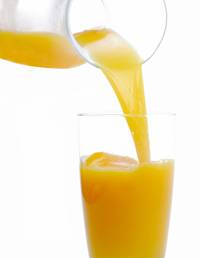
| Hangover Management |  |
Manage Your HANGOVER for Free
|
Alcohol Metabolism 101Alcohol, also known as Ethanol, is a molecule made up of three basic atoms, Carbon, Hydrogen and Oxygen. The chemical formula is C2H5OH. When metabolized in the body it is broken down carbon dioxide (CO2) and water (H2O). This generates energy. Alcohol is metabolized almost entirely in the liver to yield 7 calories of energy per gram of ethanol intake. The intermediate stages of the enzymatic breakdown of ethanol generates acetaldehyde which can build up in excess. This free radical in excess can cause serious injury to the cells of the liver and brain. It is widely believed that the damage caused by free radicals are associated with premature aging. N-acetyl-cysteine derived from the amino acid cysteine has been shown to bind acetaldehyde and prevents its damaging effects. |
|
|
| Starvation or fasting decrease the rate of alcohol metabolism while the metabolism of glucose (blood sugar) tends to increase it. The biochemical steps involved are limited by the availability of certain required enzymes. Fructose, a simple sugar, present in most fruits and pure fruit drinks, can help bypass these rate limiting steps. Furthermore fructose does not require insulin to be taken up by the cells so it can act faster to speed the metabolism of alcohol and lower blood alcohol levels faster. The end result of alcohol breakdown is water and carbon dioxide which are eliminated from the body. |
|
 |
The Free Hangover PreventionFructose is available in fruit drinks especially orange juice and apple juice. However drinking these juices alone will not prevent a hangover. The reason is the juice is too concentrated. It does not contain enough water to overcome the dehydrating and diuretic effects of the alcohol in the body. To overcome this simply dilute the juice with water. A 50:50 mix of orange juice and water is ideal. Orange juice is preferred as it contains Vitamin C (an antioxidant) but if it cannot be tolerated use apple juice. Generally a 12-16oz glass of orange juice and water taken after consuming alcohol is enough to prevent the headache associated with excess consumption. That’s it! |